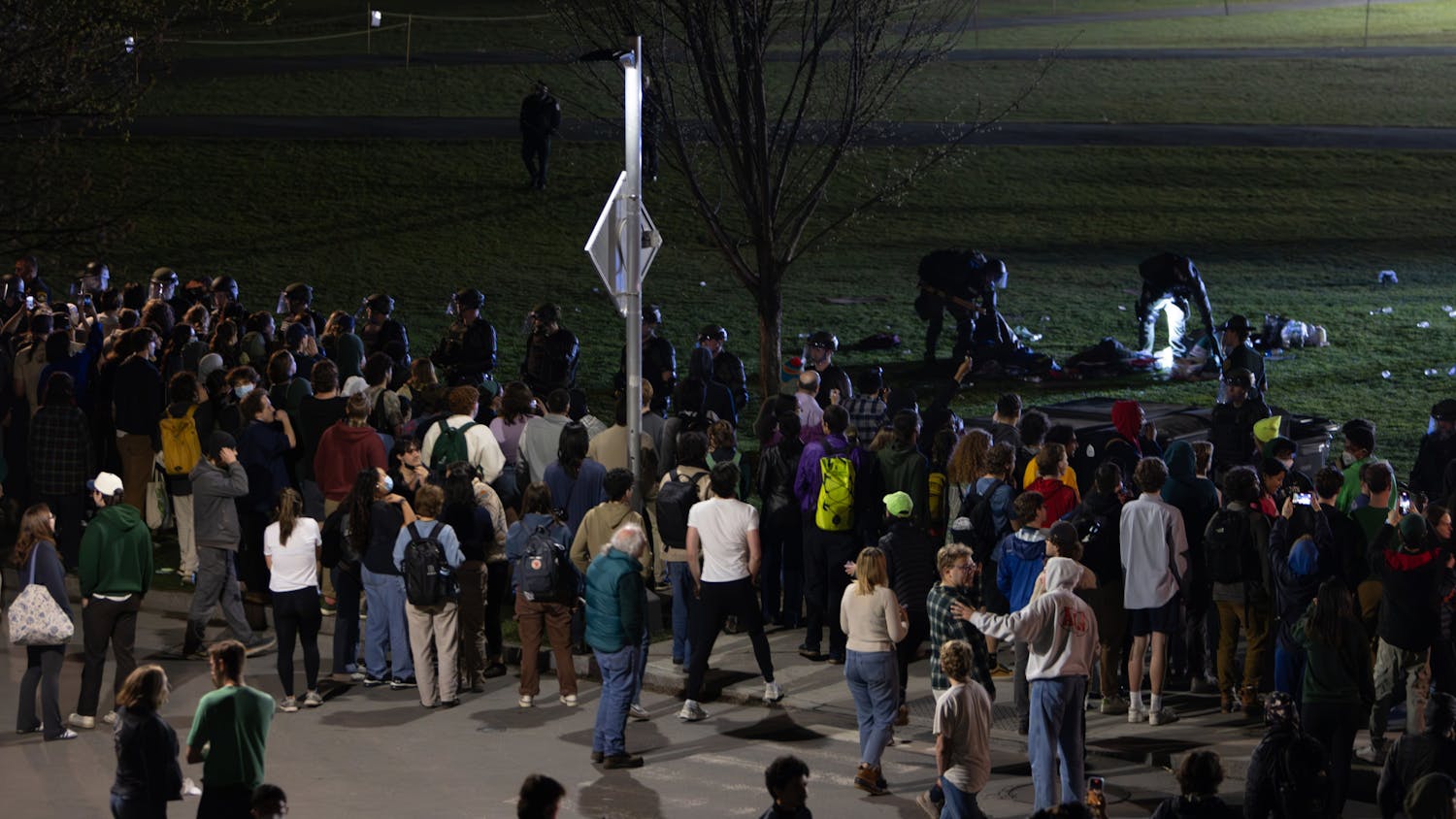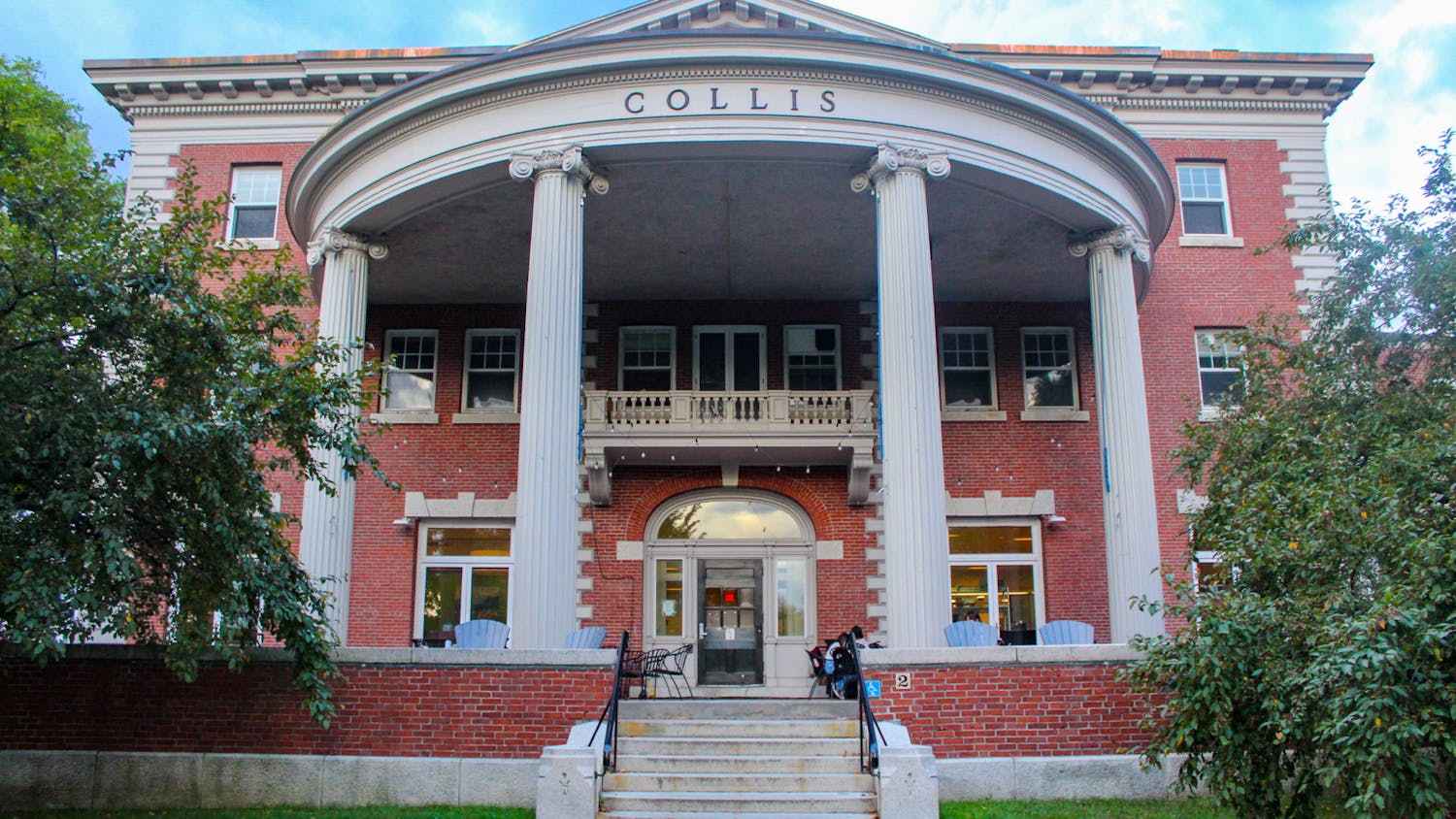Despite popular belief, concentration camps were not "shrouded in secrecy" in Nazi Germany, Robert Gellately said yesterday in a speech to a standing-room only audience in 105 Thornton.
Instead, the German press presented the camps in a light that fulfilled Germans' desire for so-called "law and order," the professor of Holocaust history at Clark University in Worchester, Mass., said.
"A great deal of information was published in Nazi Germany about the camps, as well as other sources of terror, such as the Gestapo," he said.
"The real object of these accounts, of course, was to sell terror."
Gellately said there was "a kind of divided consciousness" about the concentration camps in Germany.
Jews and others who were hated by the Nazis knew a trip to the camps was a death sentence, especially during World War II.
Nazi-accepted Germans chose to believe the propaganda because it eased their fear of being persecuted, directed the terror at people who were "others" and justified the existence of the camp as a positive element of society.
"It's hard for me to say whether these people willingly blinded themselves, did not want to see or simply overlooked," Gellately said.
He said the press presented the first concentration camps as holding places for Communist political prisoners who would only return to their "subversive activities" if they were released.
Germans saw the camps as therapeutic and educational work opportunities for the prisoners, who would eventually return to society as useful citizens.
"This is a boot camp mentality -- and of course, the temptation is: Isn't this the right thing, to get people off the streets and working?" he said.
He said Germans also thought the camps improved their cities' economic health.
Photos of the prisoners referred to them with euphemisms such as "protective custody inmates" and depicted them working in the countryside, gardening and even playing chess.
"These pictures invited people to overlook the fact that all of these people were incarcerated without trial," Gellately said.
After 1936, the description of prisoners expanded from Communists to types such as heavy drinkers, habitual criminals and people who did not hold jobs for long.
The descriptions of the prisoners as "subhuman" and "antisocial" were vague enough that they would describe almost anybody, he said.
Gellately said the people were also described to fit certain physical characteristics, allowing for a "racist interpretation" of the camps.
The press mentioned the concentration camps less after World War II began.
However, Germans believed the camps were places for hardened criminals that were harsher than any prisons in the country.
Even if they heard some accounts of death, they thought it happened to other people who were subhuman, uncivilized and probably brought it upon themselves, Gellately told The Dartmouth following the speech.
He said the Germans were also removed from the horrors and therefore were not very concerned about any rumors.
The propaganda "gave citizens opportunities to persuade themselves that they lived in the best of all possible worlds," Gellately said. "Others -- but only others -- were excluded."
The Jewish Studies Program sponsored the speech.



